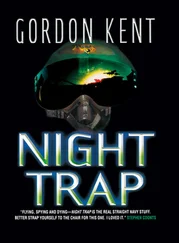THE FALCONER’S TALE
Gordon Kent
To those who didn’t cross the line
Half Title THE FALCONER’S TALE
Title Page Gordon Kent
Dedication To those who didn’t cross the line
Chapter One Chapter Two Chapter Three Chapter Four Chapter Five Chapter Six Chapter Seven Chapter Eight Chapter Nine Chapter Ten Chapter Eleven Chapter Twelve Chapter Thirteen Chapter Fourteen Chapter Fifteen Chapter Sixteen Chapter Seventeen Chapter Eighteen Chapter Nineteen Chapter Twenty Chapter Twenty One Chapter Twenty Two Chapter Twenty Three Epilogue By Gordon Kent Copyright About the Publisher
1
A steady, cold rain fell from low clouds on the naked rock of the hillsides and became white waterfalls plummeting to the coarse grass below, soaking the thin soil and filling the streams and rivers.
Piat had walked up the valley from the road at Horgsa without wetting his feet, but the stream between his legs now roared. Where he stood to cast on a tongue of gravel, the water rose around his ankles and then his shins, pushing heavily against him. The river came down the mountain behind his left shoulder and curved in front of him before running into a long, slow, deep pool forty meters long, and from there falling away into a canyon.
His hands were slick and nearly numb on the cork grip of his rod, and when he raised his arm to flick another cast over the river, more water ran down from his wrist to his armpit, soaking his old wool sweater.
After a long, slow retrieve, he cast again, then pulled the line with his rod just as the fly struck the water so that it moved an inch on the surface before sinking. A sea trout struck just after Piat thought he had missed again, the pull before the first leap sending a shock down the rod to Piat’s wet hands. Then the fish jumped again, three quick jumps, pulling line off the reel after each one, and then ran away upriver.
Piat, burning with adrenaline, steadied himself by replanting his feet. One of his wellies filled with water. The big trout took almost a hundred feet of line in a continuous stream from Piat’s reel, and then the weight on the line changed. Piat’s first thought was that the fish was gone—a fraction of a second’s pressure on the rod, and then he could tell that the fish had changed direction, running in at him and his submerged gravel beach. Piat began to reel up as quickly as he could. His reel was too small, too light for this kind of action, but he knew what he was doing, and he pulled line and reeled up and raised his rod as high as he could, risking his footing in the rising stream and filling his other boot with a considered advance into the deepening water.
The fish leaped again and then again, the leaps shorter, farther apart, and Piat caught up with the line on the reel and started to use the rod to work the fish. It felt his first real effort at control and reacted like an unbroken horse, fighting the rod with a new series of short jumps and fast pulls that served only to tire it faster. Piat had time now, and he ratcheted up the drag on his reel to make the fish’s task of taking line off all the more difficult. He took his first careful shuffles toward the safety of the bank. He was in too deep, and when his heel caught on a rock in the gravel, he almost went down—he turned his head, caught his balance, and the fish was moving again, this time toward two straggling weed beds to his right. He tried to turn it, using the strength of the rod and the line against the fish, but even now the fish was too strong.
Piat took a long, gliding step up the bank, his filled boots clumsy. With his feet planted, he risked a strong pull and turned the fish. The sea trout leaped once more, its silver length flashing across the low gray clouds.
He didn’t have a net, and it took him more time to get the fish up on the gravel above the water line. The trout was a little smaller than he had thought; the poetic clarity of its last leap had suggested a much larger fish, but he wrestled it under his arm and hit its head with his knife handle. It thrashed, and he hit it again until it was dead.
Only after he had its guts out and his hands and knife clean did he take off his socks and wring them out. He had nothing to dry the insides of his boots, so he dumped out the water and the gravel, used the socks to towel his feet and the insides of the wellies, and wrung them out again before pulling a dry pair from his pack. The change was immediate—even rammed back into wet rubber boots, his feet were warm.
The rain slowed. He poured himself a celebratory cup of coffee from the thermos in his pack and admired the fish, now lying on a patch of grass.
While he sipped his coffee, the rain stopped altogether and the low cloud blew off down the river valley toward the sea. In a minute, the vanishing curtain of rain and cloud revealed the vast landscape of the valley and the rise of mountains beyond. Before his coffee was gone, he could see for miles across the river, the mountains high and snow-capped to his left and the river valley descending in deep-cut canyons to his right until it vanished a mile away where it crossed the road to town. He was content. A rare feeling for him.
He poured a second cup of coffee and watched a distant falcon soaring above the river. A flicker of color on the most distant hillside caught his eye and he glanced up to see one of Iceland’s many buses stopped on the high road above him, hardly more than a white dot amidst a tumble of rock. It was well over a mile away. A ray of cold yellow sun flashed off the windscreen; it must have been that that had diverted him from the falcon. Even without binoculars, he could see a passenger get off, and paranoia made him suspicious—there was nothing to get off the bus for out here except fishing. Perhaps serious rock climbing.
He went back to his study of the falcon, finished his coffee and changed his fly. His hands were warmer and more nimble after holding the coffee. He smiled when he saw the fish on the grass, considered bagging the rest of his fishing and going back down the valley to his room, but he had paid the last of his diminishing supply of cash for three days’ fishing on this river and he didn’t want to waste it, although this first fish satisfied his need. He had caught a good fish.
He wished he had waders. He looked at the river, now moving with considerable speed, still beautifully clear despite the press of water.
I need waders, he thought. But he didn’t have money for waders. And they couldn’t be bought anywhere short of Reykjavik.
He made several lackluster casts. The wind had changed and developed flaws; the combination made casting tricky. He moved to his left along the rocky shore and cast again. As his eye followed the fall of the fly, another dot of color caught his attention. The bus passenger had donned a yellow slicker and was coming down the hillside. Piat had climbed that hillside himself, and he wished the late-season hiker luck in negotiating the steep, sodden marsh that passed for a trail, with grass tussocks surrounded by ankle-twisting holes you could go into to the knee. He noted that the hiker did not have a rod.
Piat fished automatically until he focused again to discover that he had moved to a place with no weed and no wind—and no fish. The casting was easy, but to little purpose, and he reeled up and started back to the beach. The pale sun became stronger at his back. Out in the river, a fish rose noisily. Piat looked up to see the size of the ring, checked on the hiker’s progress with the same glance, and was startled by how fast the hiker was moving. He was almost down to the base of the hill, walking purposefully.
Читать дальше












